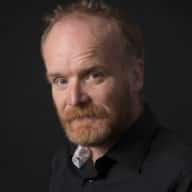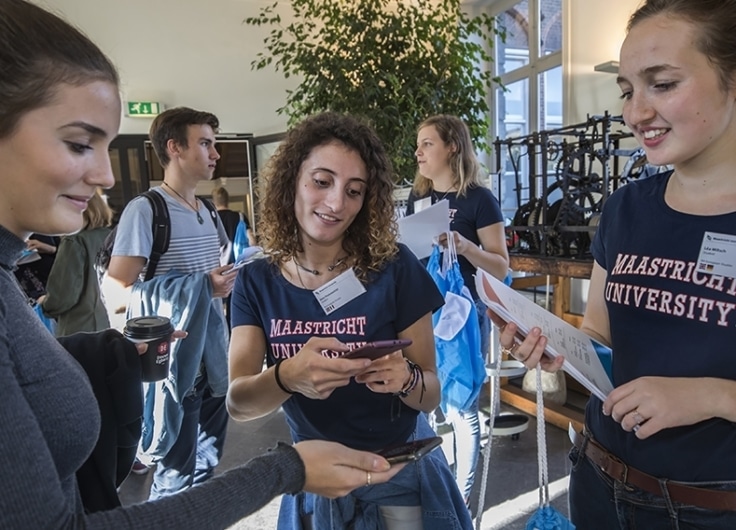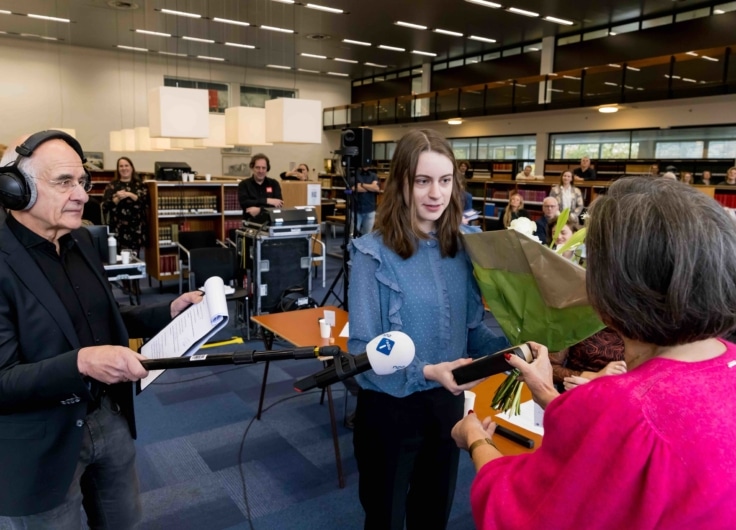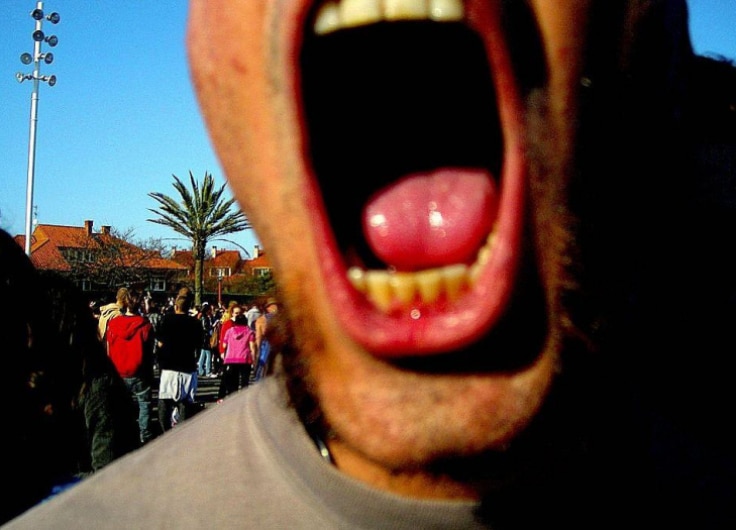Why We Will Never Agree About Dutch
Dutch is a multicentric language, that is the consensus propagated by the Taalunie (Dutch Language Union) and others. We all speak Dutch, but some of us speak Belgian Dutch, others Netherlandic Dutch, and still others Surinamese Dutch. Linguist and Professor of Dutch Marc van Oostendorp exposes that consensus as a political construct. So, what does that mean for Dutch and the idea of a standard language? How differently do the various countries and regions view our language?
Dutch is an illusion. There is nothing wrong with that, much in people’s lives stays afloat on illusions – but, if we want to do something together, we need to agree on what precisely the illusion is.
There are more than twenty-one million people who, we say, speak Dutch, but they all speak slightly differently. Some speak a language very close to what we call German, or Frisian, and some mix in all sorts of elements that we call Turkish, or English, or French. The term Dutch
suggests boundaries and demarcations that are not there in practice.
Languages are outside politics, in the wild, fluid and uncountable. Obviously, you can see that there are similarities in people’s language use. Obviously, you can probably understand someone who was born fifty kilometres away better than someone from the other side of the Earth. And obviously, you can manage fine in daily life with the question “Do you speak Dutch?” to make a reasonable assessment of whether you can understand the other person. But to say that virtually all Dutch and Flemish people share a language reflects wishful thinking at best.
Fernseher
Illusions have their uses. It is nice that when you buy a book you have some guarantee that you will understand what is written in it. It is nice when you go to another country that you can do a course to be able to more or less converse with most of the inhabitants of that country. We make agreements to maintain certain illusions because they provide a way of dealing with daily life.
In other words, languages are political constructs. Chinese has “dialects” that are linguistically further apart than Romance languages like Italian and Spanish. This publication is not written in German mainly because the Low Countries managed to stay out of the German empire. And the fact that the Netherlands and Flanders speak the same language is equally an act of political will. It is because there are enough people who want it or allow it. There are no more differences between Bosnian and Croatian, and we call them different languages.
Moreover, this political construct creates its own reality in the long run. If a norm is propagated in schools or in the media, people try to conform to it. Where dialects on the two sides of the Dutch-German border are traditionally barely distinguishable from each other, people in the west talk nowadays in dialect about televisie (television) and in the east about Fernseher.
The splits
Yet of course reality also exerts its power, and you cannot just call everything the same language. Even the greatest fan of Belgium as a unitary state will not manage to convince people that all Belgians actually speak the same language. Likewise, cracks can be found now and then in the political ideal of “the Dutch language”, even though it has been propagated for many decades. Do we indeed all speak the same language?
The term "multicentric language" is a sign that we are doing the political splits. Yes, we are a unity. No, we are different.
The solution to that sort of problem is also political. Just as you can keep a divided country intact by making it a federation, language policy thinkers have come up with the idea that you can refer to a language with major differences as a “multicentric language”, a language with many centres. Yes, we all speak Dutch, but some of us speak Belgian Dutch, others speak Netherlandic Dutch, and still others Surinamese Dutch. That such essentially absurd terminology is accepted with little difficulty is a sign that we are doing the political splits. Yes, we are a unity. No, we are different.
Multistandard
Furthermore, the term multicentric raises additional complications. It suggests that every variety has a centre and a periphery focused on that centre. Those centres can indeed be roughly pinpointed, but certainly not precisely. It is perhaps easiest in the case of Suriname, i.e. Paramaribo. For Flanders, it might be roughly the Antwerp region and for the Netherlands the Randstad. But these are already rather broad concepts. Is Amsterdam “the centre”? The Hague? Haarlem? Moreover, it ignores the fact that in the Netherlands, for example, there are also regional differences in what the standard is. In the south, people pronounce a soft g and in the north a hard, and no one would claim that Dutch with a soft g is not a standard language.
The discussion is mainly, and sometimes at its most virulent, in the German language area. Five countries – Germany, Austria, Switzerland, Belgium and Luxembourg – have conferred official status on German. Particularly in Austria, which has no other official language, multicentricity is unclear. So what exactly are the centres? Moreover, the geographic “centre” of the German language is equally unclear in Germany. In the north, they speak differently than in the south. For these reasons, the German linguist Peter Auer has proposed speaking of a multistandard language.
However, even that terminology does not immediately solve the problem. After all, what is
a language with multiple standards? There are, for example, two official Norwegian standard languages, Nynorsk
and Bokmål, both of which are to some extent supraregional (although Nynorsk is mainly based on western dialects and Bokmål on the Oslo area and Danish). Yet people here generally refer to them as two different (standard) languages. To complicate matters further, Norwegians generally still speak dialect in daily life and the choice for one of the standards is at least partly ideological.
Lowlands
Another complication, in the case of Dutch (and German), is the name of the language. Nederlands – i.e. Dutch – naturally suggests a connection with Nederland (the Netherlands), and that the language as it is spoken in that country actually has primacy. Nederlands is the language of the Netherlands. That makes Nederlands-Nederlands – or Netherlandic Dutch – such a strange form, too, where the second Nederlands is supposed to be a neutral designation of the language and the first to demarcate the language geographically. It seems to me that you can never get away from the suggestion that the real centre is always in the Netherlands and that the real standard is the Dutch version of the language, from which others may perhaps be derived. For someone striving for terminological equivalence, this is, in short, a disaster. A term like Lowlands (Dutch Lowlands, Belgian Lowlands) would offer some solace – although, of course, Suriname cannot be considered part of the Low Countries.
But anyway, to my knowledge no one is looking for such a term. Whatever people may want politically, it is not to get rid of the non-multicentric terms Dutch and German.
Programme
Despite all these problems and the lack of clarity, multicentricity has meanwhile, certainly since the start of this century, been the official policy of the Dutch Language Union (Taalunie). I have not been able to find any document in which the organisation, once set up to emphasise unity, makes this policy explicit, but at least twenty years ago documents were being issued in which multicentricity is mentioned, in so many words, and nowadays it is in almost everything that the Language Union publishes – not as a political abstraction or as an aspiration, but as an incontrovertible fact, something that can be directly seen in reality. The Language Union is actually a federation of collaborating languages. (Its official name is the Dutch Language Union, but in recent years it has left out the “Dutch” in most of its communication.)
When a political-administrative organisation, which the Dutch Language Union is in essence, sends out this sort of message, it is a sign that there is no longer any serious political discussion about the matter concerned. All sorts of other organisations – the International Association for Dutch Studies (IVN), for example – also subscribe to this view. In the case of the IVN, by the way, there are also obvious political interests of their own involved. It is primarily an association of university teachers outside the Dutch language area – and university language policy is such that a course is always named after a “language”, you train students in a “language”. It is useful then if you can demarcate it a bit without at the same time excluding too much. The language of Antwerp and that of Amsterdam should both be on the programme and yet a distinction must be made.
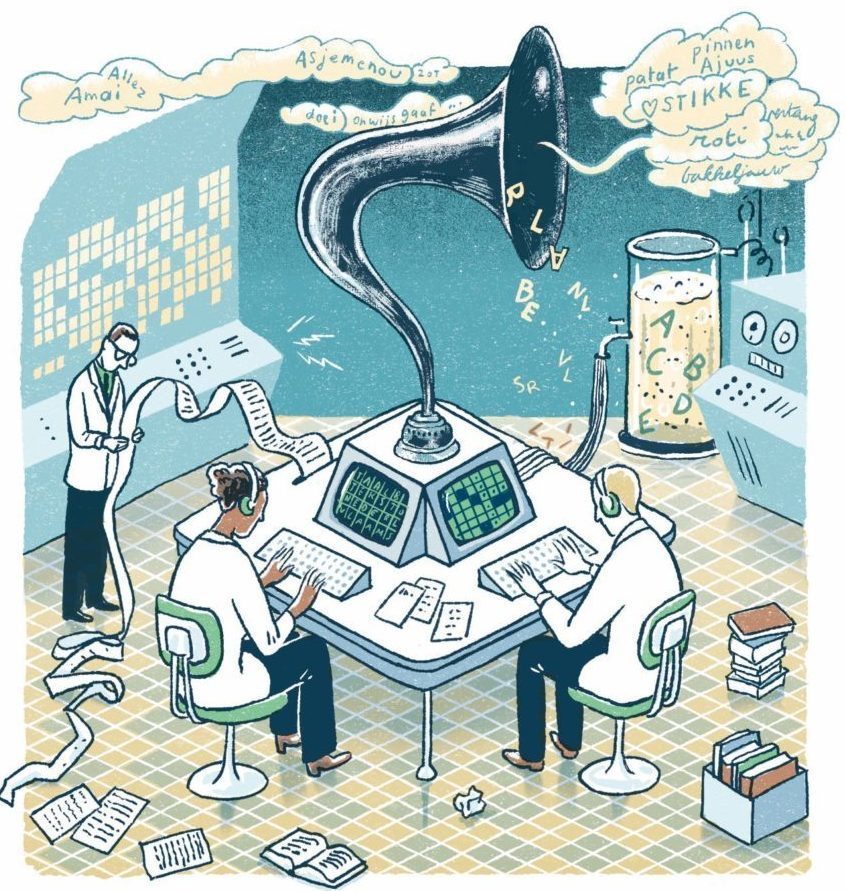
© Stijn Felix
Internal language
In the specific case of the Language Union, however, there is perhaps an even greater problem than the language differences between the collaborating countries – a crack that goes deeper than the still rather small differences that have so far been determined between the different standard languages. It has to do with the fact that there are different language cultures in the different countries, different ways of thinking about language.
Let us start with Flanders. It is no exaggeration to say that the idea of a Dutch Language Union was originally Flemish, the result of more than a hundred and fifty years striving for better status for the language spoken in Belgium that was not French. But what was it then?
The story is well known. The idea of rigid particularism – people in Flanders did not
speak the Dutch of the Netherlands but a language of their own, i.e. Flemish – was gradually losing ground as early as the nineteenth century, and the idea of unity with the northerners increasingly gained the upper hand. After the Second World War in particular, the idea really began to take shape. The so-called ABN circles, for example, were committed to “beautiful” Dutch, which was assumed to be spoken in the Netherlands. The establishment of the Language Union in the early 1980s, when the work of the ABN circles came to an end, can be seen as the culmination of that idea.
During all that time, the idea that there should be unity played much less of a role in the Netherlands. I do not think that many people in the north would have been very unhappy if those in the south had decided at some point that Dutch was not spoken there, but Flemish for example. Basically, many Dutch people do not care whether non-Dutch people speak Dutch too, for them Dutch remains the internal language of their own country.
The Language Union’s mix also includes Suriname. As an “associate member” that contributes few resources, it has less to say and the policy hardly seems aligned with their kind of ideas about language, about Dutch. Indeed those ideas are very different. To a much greater extent than the Netherlands and Flanders, Suriname is an inherently multilingual society, where many languages are spoken. On the one hand, Dutch is only the mother tongue of a small minority, on the other, it has the role of an official language and sometimes a lingua franca. Far more than it is in the Netherlands or Flanders, Dutch is an instrument in Suriname – one about which you could rationally discuss whether it would not make more sense to replace it at some point with Spanish or English. Moreover, Dutch is of course the language of the former coloniser – very different from a high cultural product or an everyday instrument. Finally, Suriname is also much poorer than the Netherlands or Flanders, and many people have other matters to worry about than language.
Vercingetorix
To this day, the difference in political motivation still plays an important role, in the functioning of the Language Union for example. If you go to a meeting of the Interparliamentary Commission (IPC) on the Language Union, the body in which Dutch and Flemish parliamentarians are supposed to critically monitor language policy together, you will always find a couple of active and well-informed Flemish parliamentarians, whereas you can be happy if there is one Dutch Member of Parliament who has quickly gone through the documents on the train on the way there. In recent years, too, there have been a large number of debates on the Language Union in the Flemish Parliament – something that should not actually happen (because parliamentary monitoring should take place in the IPC), but it is also something that no Dutch parliamentary group would be tempted to do. Sometimes Flanders’ ambitions regarding language policy are too big for the Language Union, whereas they are almost non-existent in the Netherlands.
The Flemish idea of what exactly language is, is thoroughly French
That feeling for politics, that idea that language must be a subject of strife, is often attributed to the fact that Flemings have fought for their language for so long, whereas it has been a matter of fact for the Dutch since the Golden Age. I do not want to detract from that, but I think there is something else at play in the background. The Flemish idea of what exactly language is, is thoroughly French.
In France, too, as in Flanders and unlike in the Netherlands, the language is a political object, although of course, the position of French has never been in question, as it were, since Vercingetorix. More than that, the French-speaking world has for centuries had an enormous influence on other languages – including in the Netherlands. Only the Dutch have never completely adopted the culture that goes with it, as the Flemish have, the idea that language is a form of culture rather than a form of nature – something you can create and something you can aspire to rather than something you have by nature.
Frustration
In the Netherlands, the dominant idea about Dutch is “this is my language”. The way I speak is Dutch. Admittedly, I might perhaps make mistakes, and in other parts of the Netherlands people may speak differently, but in the end, my way of speaking is still Dutch.
This attitude, so different from the Flemish, which overwhelmingly places Dutch outside itself – in Platonic heaven perhaps, as something to aim for but never achieve – explains why the Dutch seldom compliment other Dutch people on their beautiful Dutch. To start with, hardly anyone aspires to beautiful Dutch, the whole idea of “beautiful Dutch” falls outside the mainstream language ideology.
It also explains, at least partly, the Dutch tendency not to understand Flemish people. Almost all my Flemish friends, some of whom reach the highest pinnacles in the pursuit of standard language, are familiar with the experience of suddenly being addressed in English in a Dutch shop. They have a different – a foreign – accent.
Conversely, it explains the frustration that Flemings often feel and sometimes express about the Dutch – those of whom it has been said for decades that they were the norm, but who care so little about that norm.
Logical
Uniting these different ways of looking at language is an almost impossible task. If you see language as a cultural product, you make very different, and sometimes opposing, demands than if you consider language primarily as a tool. Moreover, you also have a different attitude towards the way you should deal with multicentricity or other variations within the norm. Dutch people see multicentricity mainly as an affirmation of differences and the Language Union – insofar as they take any interest in it at all – as a way of distributing subsidies. A Fleming sees in it a painful violation of an ideal or an attempt to save that ideal as best they can.
There is nothing wrong with Dutch being an illusion. Our lives are necessarily based on illusions – auxiliary constructs that make the world easier to understand. But illusions can also disappear again. Once illusions are institutionalised, they can last a bit longer – but not forever. If I am not mistaken, there are more and more cracks in the Language Union. Flemish parliamentarians are increasingly discussing the language in their own parliament rather than only in the Interparliamentary Committee intended for that purpose. Moreover, in late 2022, the Dutch parliament passed a motion to pay one million euros a year to support foreign courses in Dutch language and culture – outside the framework of the Language Union. Meanwhile, the Language Union has existed for forty-three years. I wonder whether it will reach one hundred.

